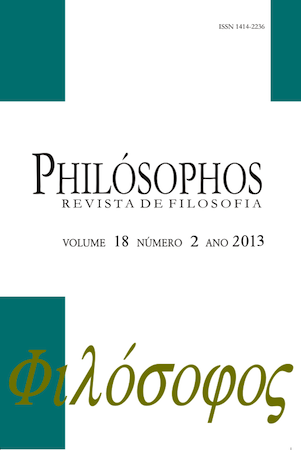THE DEVELOPMENT OF INTERSUBJECTIVITY IN THE WORK OF MERLEAU-PONTY
DOI:
https://doi.org/10.5216/phi.v18i2.19632Keywords:
Otherness, Flesh, Body, Phenomenology, Intersubjectivity, Ontology,Abstract
The problem of intersubjectivity and effort into solving it are present throughout the work of Merleau-Ponty, but differently in each phase of his thought. While his early work by introducing the issue of reinstatement of the significant and symbolic value to the body, deepen their past work on the thesis of the pre-objective to serve as a basis for explaining the possibility of interpersonal relations. Taking into account the characteristics of each philosophical moment, it is noted that the experience and recognition of others are addressed in an increasingly complex, as the author sees the need for a more pronounced fall into the flesh of the world. The aim is, therefore, go through the investigative path corresponding to different moments of his philosophy of intersubjectivity in order to highlight the inchoative walk in search of an approach that can definitively abandon the assumptions of the philosophies of consciousness.Downloads
Downloads
Published
How to Cite
Issue
Section
License
Authors who publish in this journal agree to the following terms:
- Authors retain copyright and grant the journal right of first publication, with the work simultaneously licensed under a Creative Commons Attribution License that allows others to share the work with an acknowledgement of the work's authorship and initial publication in this journal.
- Authors are authorized to enter into separate, additional contractual arrangements for the non-exclusive distribution of the journal's published version of the work (e.g., publishing in an institutional repository or as a book chapter), with an acknowledgement of its authorship and initial publication in this journal.















